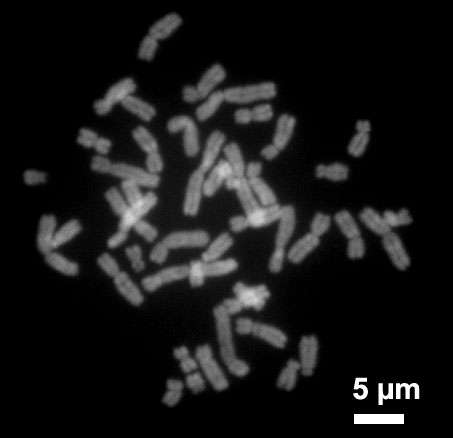Knowledge gap on the origin of sex

There are significant gaps in our knowledge on the evolution of sex, according to a research review on sex chromosomes from Lund University in Sweden. Even after more than a century of study, researchers do not know enough about the evolution of sex chromosomes to understand how males and females emerge.
Greater focus on ecological aspects would increase this knowledge, according to evolutionary biologists at Lund University, who have reviewed a lot of the research conducted in this field in the last 100 years.
Female and male bodies work differently, even though they have the same genome. One example is reproduction.
"There is a form of genetic conflict between the sexes - a conflict in the genome itself - which we know little about", says professor Bengt Hansson at Lund University.
Together with senior lecturer Jessica Abbott and doctoral student Anna Nordén, he has read more than 100 scientific articles and papers describing the evolution of sex chromosomes and the genome. Together, they have identified two tracks that have each dominated the research since the late 19th century: empirical studies and various theories.
The review shows that the significance of ecology has not been sufficiently noted. Therefore, the biologists in Lund call for more research on how the living environment of a population affects the development and evolution of sex chromosomes. This could include factors such as access to food, age variations within a population or the consequences for sex chromosomes when populations that have lived separately meet and mix.
"Additional approaches in research will probably lead to a much more detailed understanding of the development of sex chromosomes and, in turn, of how females and males evolve", says Jessica Abbott.
The research can lead to concrete benefits. One example is releasing sterile males in populations of malaria mosquitoes, as an attempt to limit the number of mosquitoes in certain areas.
Drugs that target women or men specifically are another hot research field. According to the biologists at Lund University, this is also an area that requires more knowledge on the evolution of sex chromosomes.
More information: Jessica K. Abbott et al, Sex chromosome evolution: historical insights and future perspectives, Proceedings of the Royal Society B: Biological Sciences (2017). DOI: 10.1098/rspb.2016.2806
Journal information: Proceedings of the Royal Society B
Provided by Lund University





















